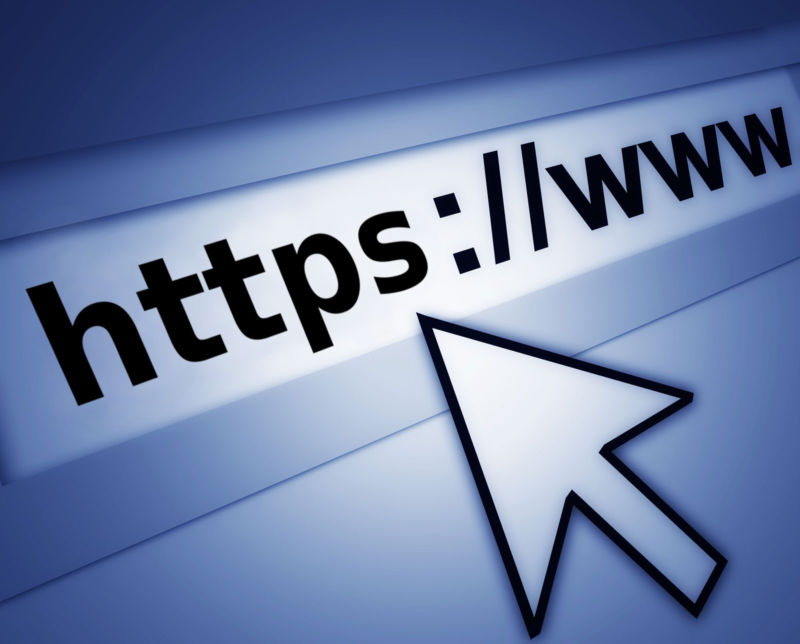
Content delivery network Cloudflare is introducing a free service designed to make it harder for browser-trusted HTTPS certificates to fall into the hands of bad guys who exploit Internet weaknesses at the time the certificates are issued.
The attacks were described in a paper published last year titled Bamboozling Certificate Authorities with BGP. In it, researchers from Princeton University warned that attackers could manipulate the Internet’s border gateway protocol to obtain certificates for domains the attackers had no control over.
Browser-trusted certificate authorities are required to use a process known as domain control validation to verify that a person requesting a certificate for a given domain is the legitimate owner. It requires the requesting party to do one of three things:
- create a domain name system resource record with a specific text string;
- upload a document with a specific text string to a Web server using the domain;
- prove receipt of the email address containing a text string sent to the administrative contact for the domain
The Princeton researchers demonstrated that this validation process can be bypassed by BGP attacks. Before applying for a certificate to a targeted domain, an adversary can update the Internet’s BGP routing tables to hijack traffic destined for the domain. Then, when a CA checks the DNS record or visits a URL, the CA's query goes to an attacker-controlled server rather than the legitimate server of the domain operator. When the attacker is able to produce the text string designated by the CA, that is considered proof of domain ownership and the CA issues a certificate to the wrong party.
Reining it in
But these attacks come with limitations. BGP attacks usually hijack only a portion of a domain’s incoming traffic, rather than all of it. As a result, computers in one part of the world will be directed to the attacker’s imposter server, while computers elsewhere will still reach the legitimate server.
Cloudflare, with more than 175 datacenters worldwide, is unveiling a new service called multipath domain control validation that’s designed to exploit this limitation of BGP hijacking. As its name suggests, it performs the validation process from multiple origins that follow different Internet paths to the domain. Unless the results from multiple queries are identical, the validation will fail.
“We’re going to be leveraging Cloudflare’s global network to perform this domain check, whether it’s DNS or HTTP, from various vantage points that are connected through various networks,” Nick Sullivan, head of cryptography at Cloudflare, told Ars. “If you’re hijacked, [the fraudulent data] only applies to a subset of the requests.”
Agents and orchestrators
Cloudflare will be making a programming interface available for free to all certificate authorities. The multipath check for domain control validation consists of two services: agents that perform domain validation out of a specific datacenter, and a domain validation “orchestrator” that handles multipath requests from CAs and dispatches them to a subset of agents.
When a CA wants to ensure a domain validation hasn’t been intercepted, it can send a request to the Cloudflare API that specifies the type of check it wants. The orchestrator then forwards a request to more than 20 randomly selected agents in different datacenters. Each agent performs the domain validation request and forwards the result to the orchestrator, which aggregates what each agent observed and returns the results to the CA.
Sullivan said Cloudflare has designed the new service to be an effective measure against another potential domain validation attack that spoofs IP addresses in DNS requests that use the user datagram protocol (UDP). Because the IP address of the computer making the request can be spoofed, an attacker can make a request to a targeted domain appear to come from a CA. Then, by manipulating a maximum fragment size setting, the attacker can receive a second identical response.
The new Cloudflare API prevents these DNS spoofing attacks because it sends queries from multiple locations that can’t be predicted by the attacker, Sullivan said. In a message, he wrote:
Multipath DCV was designed for and is primarily effective against on-path attacks. An additional feature that we built into the service that helps protect against off-path attackers is DNS query source IP randomization. By making the source IP unpredictable to the attacker, it becomes more challenging to spoof the second fragment of the forged DNS response to the DCV validation agent.
Sullivan said Cloudflare is offering the service for free because the company believes that attacks on the certificate authority system harms the security of the entire Internet. He said he expects the use of multipath domain validation to become standard practice, particularly if it’s offered by other large networks. Eventually, he said, it may be mandated by the CA/browser forum, which sets industry guidelines for the issuance of TLS certificates.
“I’m a little surprised this hasn’t happened yet,” Sullivan said. “We’re hoping that this announcement and this product helps spur the CA/Browser forum to adopt and require this more robust multiperspective validation for certificate authorities. It truly is a risk that hasn’t been exploited yet, and it’s just a matter of time.”
reader comments
37